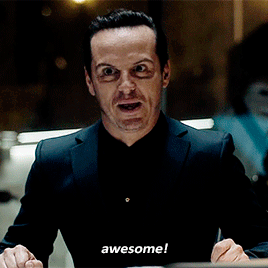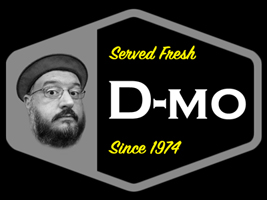


| 
|
 |
Editor's Note: The bulk of this was originally written on January 24, 2017. Unfortunately, it got lost in the shuffle and never saw print. Luckily, I found it again, spruced it up a bit, put a little polish on it, and am finally getting it posted. While the topic may not be as fresh as it could have been 10 months ago, the message still rings true. The most common refrain regarding Hollywood is that it has run out of ideas. They are recycling and recycling and recycling because there isn't anything new out there (maybe that's why La La Land won awards left and right... it's "different"). But rarely, if ever, have I seen two different entertainment offerings with the EXACT same story. Not similar elements; identical stories.
The only reason I can say that it's the same story is because I saw them both, for the first time, within 24 hours of each other. I caught the replay of Sherlock on PBS on a Saturday, and then watched Spectre (courtesy of Netflix) on the Sunday. The core story is the same. The toppings may be different, but the baked potato underneath is identical. Let me tell you a tale. WARNING, SPOILERS AHEAD. Our story presents the protagonist (James Bond and Sherlock Holmes), who finally meets the antagonist (Blofeld for Bond; Eurus for Sherlock) that had been orchestrating the events that were been portrayed in the previous films/episodes. The antagonist has specifically sought to cause strife for our hero on multiple levels, and we learn the shocking revelation that the antagonist is actually a long lost SIBLING (Blofeld is Bond's foster brother; Eurus is Sherlock's sister). Not only is the sibling re-introduced to our hero after many, many years, but we discover that the antagonizing sibling's angst stems from jealousy they had towards their brother due to some level of neglect that they felt as a youngster. But wait, let's twist this plot a little more. We also learn that the antagonist has been a psychopathic villain since that young age, as it's revealed that said villain sibling had killed the person with whom our hero had grown close to... WHILE THEY WERE STILL KIDS... without our hero's knowledge at the time (Blofeld killed his own father, Bond's foster father; Eurus killed Sherlock's best friend). At this point, you're probably thinking, "The long lost evil sibling isn't new; soap operas do it all the time." True, and again, this highlights that it's not an original idea. Hang tight though, our matching stories aren't done yet. Our villain now begins to put our hero through a bit of torture (physical for Bond; psychological for Sherlock) to cause our hero considerable pain. The villainous sibling seems to revel in the pain that our hero suffers. As part of the evil sibling's backstory, we find that the both Bond's foster brother and Sherlock's sister have managed to subvert a government agency/installation, and most of the government lackeys portrayed onscreen are now working for them. The level of control they have over the entire situation is repeatedly displayed and demonstrated, much to the chagrin of our hero. In the end of our story, our villain gives their brother a choice: capture them and end the madness, or save the innocent partner that has been put in an unnecessarily elaborate death trap (Dr. Swan for Bond; John Watson for Sherlock). Naturally, our hero manages to do both, and amazingly, both villains end up alive (though in custody) when the credits roll. And just when you think the similarities end there, we got a delightful bonus. Andrew Scott breezes through at random parts of the movie/episode, his role of no major or impactful significance (he plays "C" in Spectre; Moriarty in Sherlock), to gleefully chew on the scenery. You know you love it.  How was this even possible? Unless Moffat and Gatiss saw Spectre and maybe got a little too inspired when writing the last episode of Sherlock. Seriously, what are the odds that they independently came up with a concept that was already done a year and a half earlier? It would be irresponsible to accuse one party of plagiarism, but this whole shebang is downright unacceptable. This is the proof, though. If we ever needed a perfect example that we can point to when saying Hollywood has no more original ideas, this is it. The saddest part is that the Spectre story (that was redone as a Sherlock story) wasn't all that great to begin with, and a hardly a candidate for aping. It's slightly convoluted, requiring more suspension of belief than should be needed. We shouldn't be afraid to try new ideas. A few will be hits. Some may even surprise us. Iron Man originally was a roll of the dice with low expectations. What happened? It practically re-invented a genre (and made Robert Downey, Jr. the most famous man on the planet). Don't forget, someone pitched the idea of a tornado full of sharks and it became a cultural touchstone (of course, since the Hollywood machine lacks originality, they churned out five of those movies). Familiarity may feel safe, but safe is boring and stifles creativity. Take a chance. Try a crazy idea. Be bold. Be daring. I still have hope that the entertainment industry has the courage to be brave and take chances on a more consistent basis. But this blog post is simply to let the movie and television players know... I saw what you did there. I expect better. |
  Thanks for visiting. Love, Demosthenes Spiropoulos |